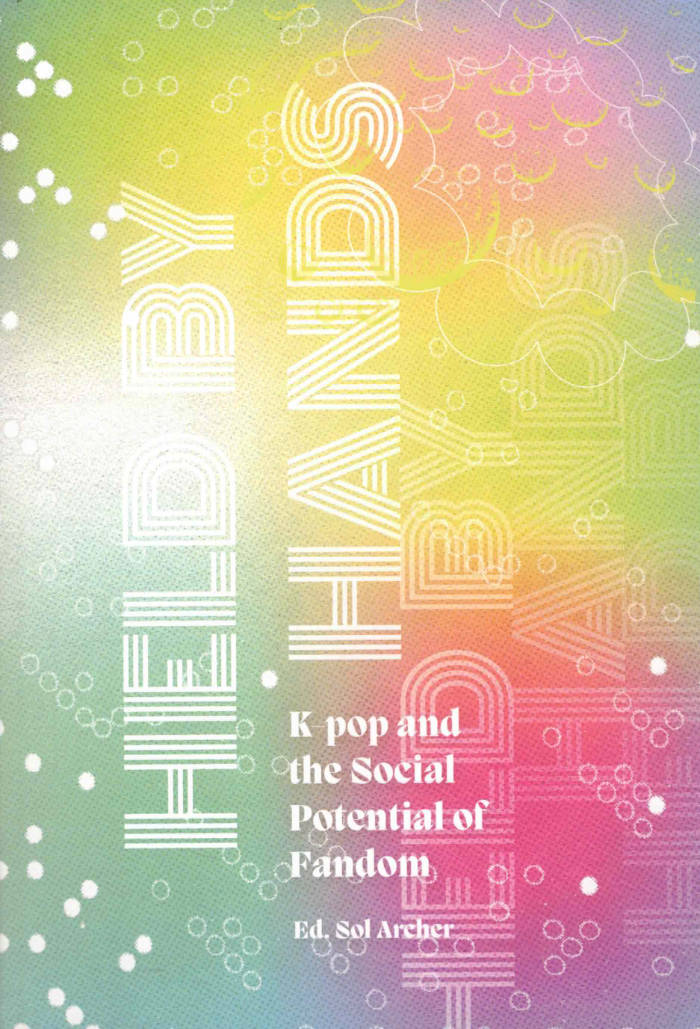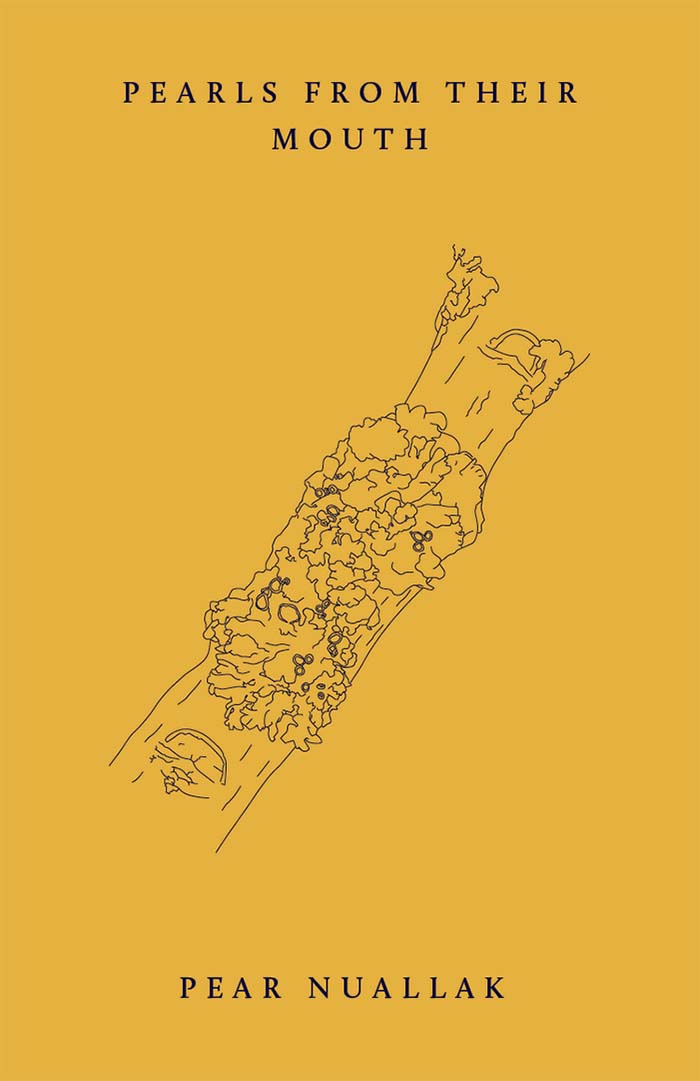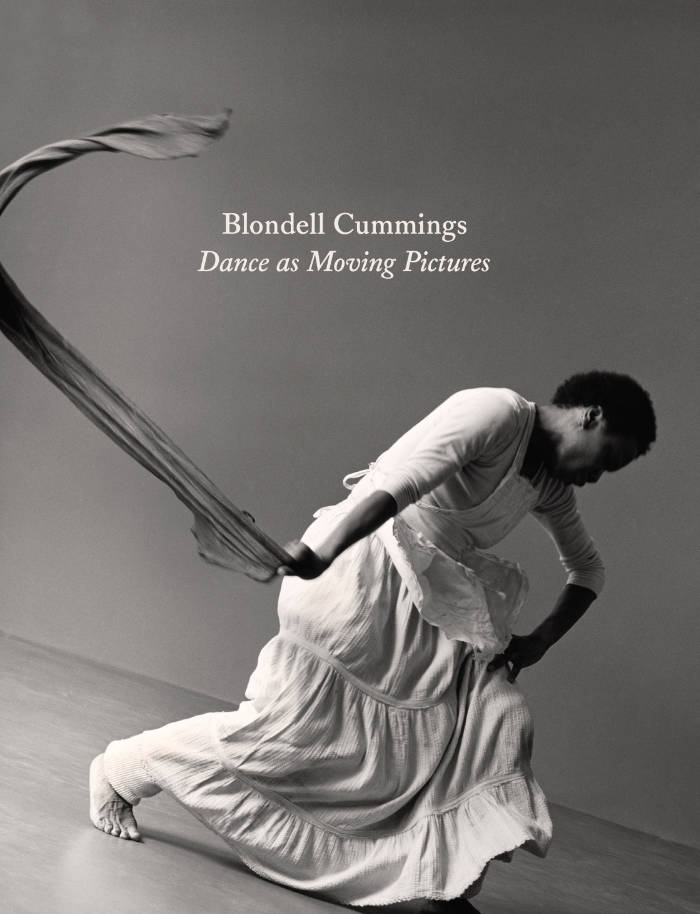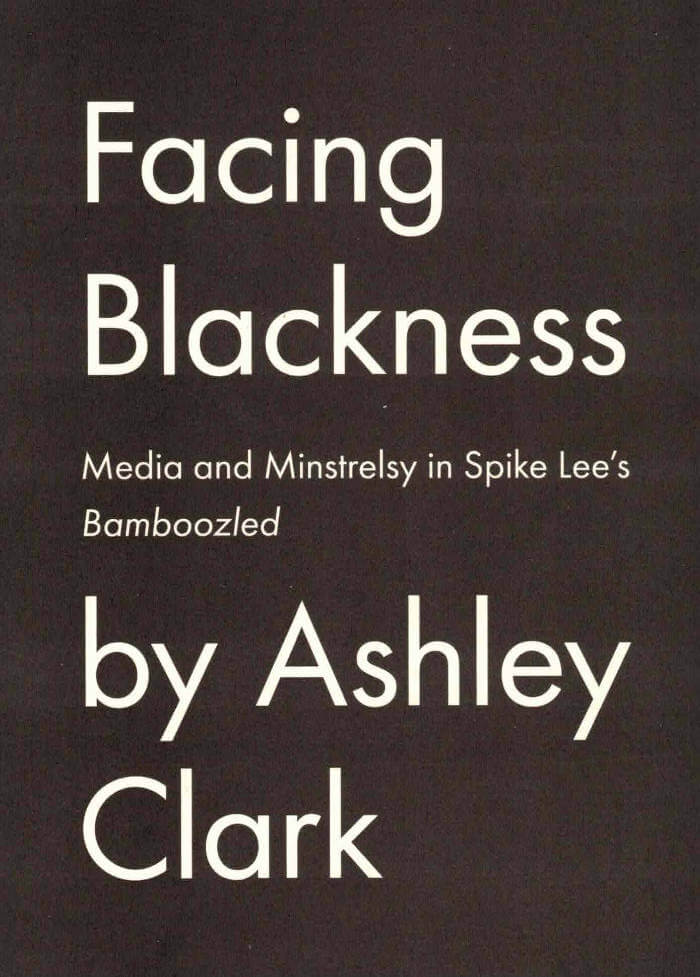Books
Books
published in 2022

Fat to Ashes
First comprehesive publication on the work of Pauline Curnier Jardin, winner of the Preis der Nationalgalerie 2019. Published on the occasion of Pauline Curnier Jardin’s first institutional solo exhibition in Germany at Hamburger Bahnhof, Berlin.
In her artistic practice, Pauline Curnier Jardin repeatedly confronts narratives from the worlds of theatre, cinema, myth, and ritual. As recipient of the Preis der Nationalgalerie 2019, the artist has developed an immersive installation in the form of an amphitheatre titled Fat to Ashes at the Historic Hall of the Hamburger Bahnhof - Museum für Gegenwart - Berlin. She reveals and reflects upon spaces for performative display and the exalted release from prevailing norms as sites of transgression and transformation.

Ecce Homo
The General Idea drawings.
Focusing on one specific and lesser-known aspect of the manifold practice of General Idea, the Canadian collective founded in Toronto in 1969 by Felix Partz, Jorge Zontal—both deceased in 1994—and AA Bronson, this volume highlights their drawing practice. It offers a generous insight into 125 carefully selected drawings realized between 1985 and 1993—the period the collective spent in New York—spanning the diversity and innovation of their singular approach to drawing and art. The publication's design is inspired by George Grosz's legendary Ecce Homo album (1922–1923) because, according to AA Bronson, "the Anti-Semitism in Grosz's narrative is mirrored by the homophobia in ours."
Investigating motifs in the group's multimedia works such as poodles, stiletto heels, masks, heraldry, and metamorphosed genitalia, these drawings were primarily produced by Jorge Zontal during group meetings. However, given General Idea's mandate for co-authorship, as well as the circumstances under which they were executed, the drawings are considered to be collaborative. Although they are done entirely by hand, the repetition of specific motifs follows a viral logic that is akin to General Idea's own penchant for mass reproduction. Seen together, these drawings are a fascinating window into General Idea's distinct artistic vision as well as their unique notions of collaboration and co-authorship. As Claire Gilman states in her introduction: "The drawings are on the one hand dizzyingly full—this is particularly true of the later drawings where cockroaches spawn and multiply amid dots and splatters of color—and, on the other, hauntingly vacant consisting of mere stains or barely-there outlines, even within a single series. Lest we get too caught up in any one particular rendition, another follows, giving the lie to its predecessor. In their mutability and insistent flow, they are an intimate manifestation of the theatrical nature of existence, exposing representation's inadequacy while acknowledging its urgency."
Edited and introduced by Lionel Bovier and Claire Gilman, co-curators of the exhibition Ecce Homo. The Drawings of General Idea, 1985–1993 held in 2022–2023 at MAMCO Geneva and The Drawing Center, New York, the book also features a conversation with AA Bronson and an index of the drawings.
Awarded: "Most Beautiful Swiss Books 2022".
Founded in Toronto in 1969 by Felix Partz, Jorge Zontal—both dead in 1994—and AA Bronson, the collective General Idea adopted a generic identity that "freed it from the tyranny of individual genius." Their complex intermingling of reality and fiction took the form of a transgressive and often parodic take on art and society. Treating the image as a virus infiltrating every aspect of the real world, General Idea set out to colonize it, modify its content and so come up with an alternative version of reality.
Paintings, installations, sculptures, photographs, videos, magazines, and TV programs: General Idea's is an authentically multimedia oeuvre, that has lost nothing of its freshness and can now be seen as anticipating certain aspects of a current art scene undergoing radical transformation.

Held by Hands: K-pop and the Social Potencial of Fandom
This book brings together personal and theoretical reflections written by members of the Brazilian K-pop community on the constructive potential of fandom in contemporary society. The texts spans experiences of occupying public space through collective dance practice, identity formation and community support, cultural appropriation in K-pop, the e ects of soft power, and considerations of the phenomenon of fandom
In the fandom universe passive consumption of culture is replaced by active participation in its co-creation. Fan-fiction is one among many examples of this. Autonomous territories, with con gurations and laws unto themselves, are built by fans experiencing culture in collectivised ways. The sense of belonging and formation of identities enabled by exchanges and diverse practices make the K-pop fandom a space with the potential for radical social transformation and collective agency, resisting contradictions inherent to contemporary social norms. This book is a collective body dancing utopia.
With contributions by Aline Barbosa, EVE, Julia Guerreiro, Kananda Simonetti, Kelly Nobre, Lohaynne Beringui, Lucas Victor Aureliano, Marcelle Belfort, Millah C. S. Gomes, Natália Amorim, Paula Castro, Paulina Yeal Cho e/and Sabrina Diniz.

Plans for Sentences
"These sentences—they—will begin having already been sentences somewhere else, and this will mark their afterlife, and this will be their debut." So begins Renee Gladman’s latest interdisciplinary project, Plans for Sentences. A tour de force of dizzying brilliance, Gladman’s book blurs the distinctions between text and image, recognizing that drawing can be a form of writing, and vice versa: a generative act in which the two practices not only inform each other but propel each other into futures. In this radical way, drawing and writing become part of a limitless loop of energy, unearthing fertile possibilities for the ways we think about poetry.
If Gladman ascribes to any particular type of poetics, here in Plans for Sentences, we are sure to find that it is robustly grounded in a poetics of infinite language.

Suites décoloniales
Cet ouvrage se compose de « leçons » pour tenter d’anticiper les contre-feux institutionnels et se confronter aux effets qui accompagnent l’offre amoureuse d’une décolonisation de façade. Essayer de comprendre pourquoi ces stratégies trouvent des prises particulières dans le contexte français et montrer comment elles composent le chemin le plus sûr pour la poursuite – et même la nouvelle peau – de l’économie néolibérale.
Olivier Marbœuf est auteur, poète, performeur. Il a été directeur artistique du centre d’art l’Espace Khiasma. À travers ses multiples expériences et sa connaissance des milieux artistiques et culturels, il analyse les chantiers actuels de décolonisation de ces espaces.

Les Matières de la nuit
« Et ensuite quand le calme est revenu, plantez à la place une femme noire qui lève le poing, même un instant, comme pour faire semblant. Une femme noire fera le job, avec le poing levé, c’est mieux, c’est cool. » Écho ou fantôme de Suites décoloniales, ce recueil de poésie prolonge et complète les chemins parcourus par Olivier Marboeuf dans son essai, au moyen de ce que l’auteur appelle une « pratique théorique de la poésie ».
Fragments de mauvaises rencontres, haïkus sur le beat accéléré d’un train, hommages à la banlieue chérie, Olivier Marboeuf se fait conteur polyphonique, poreux au monde et dépositaire des histoires étendues et vues dans de multiples nuits.

You Must Believe in Spring
Twenty years after she first chanted in Tahrir, Hanan’s son is living under military rule in Egypt. Though he is both a disciple of the national Sufi institute and a swimmer representing the Armed Forces, proximity to power cannot undo his revolutionary birthright: like his mother and grandmother before him, Shahed is an undercover rebel.
When a general arrives at the Sufi institute looking for help with a military assignment, Shahed accepts, all while concealing his own plans for resistance. The mission takes him behind the walls of a prison town, inside a secret army barracks in the Sinai desert, and deep into the murky waters of the past.
As he wades through his mother’s repressed memories and the state’s repressed histories, Shahed grapples with the traumas of the revolution and the weight of authoritarian rule, searching for new ways to revolt for freedom.
Mohamed Tonsy is a queer Egyptian writer and ceramicist. Formerly an architect and a triathlete representing the Egyptian Triathlon Federation, he completed a PhD in Creative Writing at the University of Edinburgh. His writing has appeared in Mizna and Epoch Press and was shortlisted in MFest’s 2021 Short Story Competition. You Must Believe in Spring is his first book.

Image Text Music
In Image Text Music, writer and editor Catherine Taylor explores the place where the visual meets the verbal. Taylor riffs on and subverts Roland Barthes’ classic 1977 essay collection Image Music Text using his title as playful points of departure for her thinking about the nature of image-text works and the music that might be made at their intersection.
Taylor rejects overarching statements about medium or genre in favour of observations of the particular. In the process, she reveals ways of reading that are at once erotic and political, familiar and disorienting. The book asks: as we shuttle between linguistic and visual modes of meaning-making, what is the purpose of reinventing forms if not to reinvent ways of living?

Pearls from Their Mouth
This book is built of stories and provocations—like the birth of a pearl, it transforms that which irritates, layer by layer.
Through speculative fiction and critical essays, Pear Nuallak explores what happens when messy, desiring bodies collide with the hard edge of power. The world’s neat categories are unmade and rewritten, revealing that racial capitalism’s myths are just as much fantasies as Thai bird princesses and transgender magic.
Moving playfully across folktale, horror, satire and critique, Nuallak examines how different beings are formed politically, bodily and emotionally. We discover interdimensional fungi resisting colonisation, queer monsters living on Hampstead Heath, and a mysterious canal running through the ruins of capitalism into interstitial realms. We test the borders of queer diasporic nationalism and take apart the racially melancholic memoir. In this fiery yet delicate collection, we aren’t bound by truth, but flow with it into new worlds.
Pear Nuallak is a visual artist and writer from London. They run community art workshops and co-organise a queer social hub with the Black Cap Community Benefit Society. Their writing has been published in The Dark and Interfictions. Pearls from Their Mouth is their first book.

The Stone House
A vivid, haunting tale of intergenerational trauma and survival under Israeli occupation.
A New Arab Book of the Year 2021.
The year is 1968. The recent Arab defeat in the Naksa has led to the loss of all of historic Palestine. In the midst of violent political upheaval, Mahmoud, a young Palestinian boy living in the Galilee, embarks on a school trip to visit the West Bank for the first time.
For Mahmoud, his mother and his grandmother, the journey sets off a flood of memories, tracing moments that bond three generations together. How do these personal experiences become collective history? Why do some feel guilty for surviving war? Is it strange to long for a time never lived?
In this groundbreaking novella, Yara Hawari harnesses the enduring power of memory in defiance of the constrictions on Palestinian life. Against a system bent on the erasure of their people, the family’s perseverance is unbroken in the decades-long struggle for their stone house.
Yara Hawari is a Palestinian writer and political commentator. She completed her PhD in Middle East Politics at the University of Exeter, where her research focused on oral history and Indigenous Studies. She currently works as a senior analyst at Al-Shabaka, a Palestinian think tank. The Stone House is her first book.

Oh You Nameless And New-Named Ridges
Bernadette Mayer, Lee Ann Brown
Poets Lee Ann Brown and Bernadette Mayer, old friends, began a specific correspondence in early 2020 with the intention of editing them into a book. The poems, letters, letter-poems, pletters, cover the first songbirds of spring, works and advice from friends, art, lists from the messy old internet, the possibility of seeing one another again, some day. Bernadette passed away on November 22, 2022, 3 weeks before this book was completed and bound. Throughout the text Lee Ann and Bernadette merge two distinct and unique voices in both a poetic, loving and humorous sharing. In a letter from Bernadette to Lee Ann she writes: “I imagine the voice to be/ yrs/ Because it is/not/mine.”

Weaving Language I
Weaving Language I: Lexicon is the first book in the Weaving Language series, which examines the poetics of weaving traditions through historical research as well as contemporary practices. Attempting to dismantle and rebuild commonplace understandings of the history of writing, Weaving Language focuses on fiber-based forms as a longstanding but often overlooked medium for record-keeping, storytelling, and poetry.
In Weaving Language I: Lexicon, weaving processes are mapped onto English grammar to suggest a method for reading woven works. Offering visual vocabularies as both discrete concrete poems as well as a collection of translatable terms, this book invites readers, writers, and weavers to participate by considering weaving as a system that can be decoded. Textile forms are broken into the basic building blocks of language, presented as a visual/textual lexicon.
Weaving Language I: Lexicon was initially self-published by Capone in 2012 and in 2015 re-issued in an edition of five as an artists’ book, which was awarded the Frances Mason Harris ’26 Prize from Brown University.
Essay Press’s edition makes this important work available for the first time in a trade edition. The edition has also been newly edited and significantly expanded into a multivocal work that represents the contributions of a small collective of artists including Martha Tuttle, Allison Parrish, Sarah Zapata, Adjua Gargi Nzinga Greaves, Amaranth Borsuk, and Imani Elizabeth Jackson, thanks to funding from the Oregon Arts Commission and the Ford Family Foundation. The book also includes an afterword by Kit Schluter and diagrams by Anni Albers (with permissions from the Josef and Anni Albers Foundation).
Plans are underway to similarly expand and reissue the two additional books in the series both previously published in limited editions currently out of print: Weaving Language II: Language is Image, Paper, Code, & Cloth (information as material, York, UK, 2018) and Weaving Language III: Writing in Threads (Center of Craft, Asheville, NC, 2017). The Weaving Language project has been accompanied by numerous gallery shows, including “Material Memory,” a show running from October 7 through November 9, 2022, at Nationale in Portland, Oregon, to accompany the release of the Essay Press edition of Weaving Language I.
Artists’ books from the Weaving Language series are held by the collections of the Museum of Modern Art Library in New York, NY; the Thomas J. Watson Library at the Metropolitan Museum of Art in New York, NY; the Harris Collection of American Poetry and Plays at the John Hay Library at Brown University in Providence, RI; and at the Joan Flasch Artists’ Book Collection at the School of the Art Institute of Chicago in Chicago, IL.

Dance as Moving Pictures
The first monograph dedicated to the pivotal work of African American postmodern dancer, choreographer and video artist Blondell Cummings.
A foundational figure in dance, Blondell Cummings bridged postmodern dance experimentation and Black cultural traditions. Through her unique movement vocabulary, which she called "moving pictures," Cummings combined the visual imagery of photography and the kinetic energy of movement in order to explore the emotional details of daily rituals and the intimacy of Black home life. In her most well-known work Chicken Soup, Cummings remembered the family kitchen as a basis for her choreography.
This book draws from Cummings's personal archive and includes performance ephemera and numerous images from digitized recordings of Cummings's performances and dance films; newly commissioned essays by Sampada Aranke, Thomas F. DeFrantz, and Tara Aisha Willis; remembrances by Marjani Forté-Saunders, Ishmael Houston-Jones, Meredith Monk, Elizabeth Streb, Edisa Weeks, and Jawole Willa Jo Zollar; a 1995 interview with Cummings by Veta Goler; and transcripts from Cummings's appearances at Jacob's Pillow and the Wexner Center for the Arts. Bringing together reprints, an extended biography, a chronology of her work, rarely seen documentation, and new research, this book begins to contextualize Cummings's practice at the intersection of dance, moving image, and art histories.
Blondell Cummings (1944-2015) was a choreographer and video artist who mined everyday experiences like washing, cooking and building to create works celebrated for their rich characterizations and dramatic momentum. According to Wendy Perron, Cummings crossed over from modern to postmodern, from the Black dance community to the avant-garde community. Cummings referred to her stop-motion movement vocabulary as "moving pictures," which combined her interests in the visual imagery of photography and the kinetic energy of movement. Her dances drew from an accumulation of character studies that often began with photography and workshops, and included poetry, oral histories, and projection. Her interest in moving pictures is also evidenced in her commitment to dance films. She both supported the documentation of dance, and created many experimental dance films.
Edited by Kristin Juarez, Rebecca Peabody, Glenn Phillips.
Texts by Sampada Aranke, Thomas F. DeFrantz, Tara Aisha Willis, Marjani Forté-Saunders, Ishmael Houston-Jones, Meredith Monk, Elizabeth Streb, Edisa Weeks, Jawole Willa Jo Zollar, Blondell Cummings, Veta Goler.

Empathic Intimacies: A Touch That You Can Really Feellllll
Empathic Intimacies: A Touch That You Can Really Feellllll is two essays written 2 years apart (April 2020 and April 2022), published together to create a timeline between two points during the pandemic.

GenderFail Anthology of Queer Typography Vol.1
GenderFail Anthology of Queer Typography Vol.1 is the first volume in a series of publications, workshops, and programs exploring queer and trans exploration and experiments in typography. This first volume focuses on GenderFail's ongoing typographic series of fonts created from the hand letters of protest signs from historical and contemporary acts of resistance centering the voices of queer, trans, black, and other marginalized voices.
This first volume also features a reprinting of Paul Soulellis's What is Queer Typography? that acts as both the forward to this anthology and the series in general. Soulellis first printed this text as a fundraiser for Queer.Archive.Work to help raise urgent funds for the organization. GenderFail is humbled to be able to reprint this work and have it included as a seminal text in this anthology series exploring non-dominant modes of typographic exploration.
This third edition features a four-color risograph printed cover and new sections showing open-source examples of the fonts.

Agitated Air: Poems After Ibn Arabi
Born in Murcia in 1165, Ibn Arabi was a prolific Muslim philosopher and poet. He travelled extensively before settling in Damascus, where he died in 1240. Tarjuman al-Ashwaq, or The Interpreter of Desires, is a cycle of sixty-one Arabic poems. They speak of loss and bewilderment, a spiritual and sensual yearning for the divine, and a hunger for communion in which near and far collapse.
Agitated Air is a correspondence in poems between Istanbul and Cape Town, following the wake of The Interpreter of Desires. Collaborating at a distance, Yasmine Seale and Robin Moger work in close counterpoint, making separate translations of each poem, exchanging them, then writing new poems in response to what they receive. The process continues until they are exhausted, and then a new chain begins.
Translated and re-translated, these poems fray and eddy and, their themes of intimacy across distance made various, sing back and forth, circling and never landing. Absence and approach, knowing and unknowing, failure and repetition: Ibn Arabi’s cycle of ecstatic love shimmers with turbulence. Seale and Moger move into and against these contending drifts, finding in the play of dissatisfaction and endurance a prompt for new poetry.

slow emergency siren, ongoing: Accessing Handsworth Songs
A unique limited edition accessible publication documenting a project to make Black Audio Film Collective’s seminal 1986 film Handsworth Songs more, and differently, accessible. Designed by Daly & Lyon it presents a new commissioned annotated audio description script from Elaine Lillian Joseph and new creative captions commissioned from the Care-fuffle Working Group alongside new essays by Clive Nwonka and Sarah Hayden.
The publication was produced in collaboration with Voices in the Gallery and with the support and advice of the UK Association for Accessible Formats and financial support from AHRC. The publication is also available in website form designed by An Endless Supply at slowemergencysiren.org.uk

Welcome to the Shitshow
“There are three sides to every story: your side, my side, and the truth. Yet, whatever happened at the Shitshow holds six truths.” Welcome to the Shitshow with Casper Boone was launched on Friday, December 2nd at KBK Brussels. We celebrated the birth of our inaugural publication, allied with an exhibition with works by Casper.

The Palace of Typographic Masonry
Ornamental Portal
The Palace of Typographic Masonry is an (imaginary) institute for the splendour and variety of visual languages. The Ornamental Portal informs the ornamental attitude of Rietlanden Women’s Office, the collective that designed this folding sheet for Von Wersin’s Kitchen. On the backside ‘The Redemptive Qualities Of Ornament’, a text by Dirk Vis, is printed. This iris printed sheet is send in a specific envelope depicting and describing the updated collection of Von Wersin's Kitchen.

Settler Colonialism An Introduction
From the Palestinian struggle against Israeli Apartheid, to First Nations' mass campaigns against pipeline construction in North America, Indigenous peoples are at the forefront of some of the crucial struggles of our age. Rich with their unique histories, characteristics, and social relations, they are connected by the shared enemy they face: settler colonialism.
In this introduction, Sai Englert highlights the ways in which it has, and continues to shape our global economic and political order. From the rapacious accumulation of resources, land, and labour, through Indigenous dispossession and genocide, to the development of racism as a form of social control, settler colonialism is deeply connected to many of the social ills we continue to face today.
To understand settler colonialism as an ongoing process, is therefore also to start engaging with contemporary social movements and solidarity campaigns differently. It is to start seeing how distinct struggles for justice and liberation are intertwined.

KAMERA CAHIER N° 5
Louise Crawford, Stéphan Guéneau
A special edition issue curated, designed and published by AVARIE, Paris and Labor Neunzehn, Berlin. It accompanies KAMERA SERIES, while it is an independent and valuable object to collect.
The central idea that informs and directs the booklets’ montage is the interplay between the concepts of addition and subtraction. This is achieved by unveiling a missing image in the screening or an unreleased second from an artist's film, expanded to 24 pages. Additionally, each booklet contains a piece directly removed from the show.
The editing establishes a dialogue between film frames and performed writings derived from texts, scripts, storyboards, and notes. The KAMERA exhibition is consequently extended into a physical space—the book—allowing for its widespread dissemination, complementing and contrasting with its potential online occurrence.
KAMERA SERIES is a screening program of experimental films, video art works and printed matter taking place in a former GDR building in Berlin.
75 numbered copies +
screenprinted newsprints’ fragment
24 pages / color plates
book size 21 x 14,5 cm
papers fedrigoni sirio rough pearl 210 and arena white rough 120

Who can afford to be critical?
‘Critical Designers’ produced by an increasing number of design schools are prompted to address social, political and environmental issues through their practices. Yet, who can afford to continue such effort after graduation?
In a dynamic style holding multiple voices, Who Can Afford To Be Critical? discusses the limits that affordability, class and labour impose upon the educational promise of holding a ‘critical’ practice. Why do we tend to ignore the material and socioeconomic constraints that bind us as designers, claiming instead that we can be powerful agents of change? In fact, where does our agency lie?
Instead of focusing on the dream of ethical work under capitalism, could we, instead, focus first on designers’ own working conditions, targeting them as one immediate site for collective action? And can we engage politically with the world not necessarily as designers, but as workers, as activists, as citizens?

In the Time of Kiarostami: Writings on Iranian Cinema
“There is no better way to discover Iranian cinema than to immerse yourself in Godfrey Cheshire’s beautifully written 30 year personal cinematic journey. This is an important, informative and compelling book at this global political moment. It is vital to know these filmmakers of purpose through the perception of an outsider with whom we can identify and to lose ourselves to the wonder, humanity, and artistry of a culture and cinema that demands our attention now more than ever.” — Michael Barker, Sony Pictures Classics

Facing Blackness
“In Facing Blackness, Ashley Clark traces the contours of Bamboozled, guiding readers through Lee’s intricate representation of race, politics, and popular culture. Clark moves beyond straightforward film criticism to situate the film within a complex history of blackness and American entertainment, making a powerful argument for its ongoing relevance and vitality. Thoughtful, rigorous, and witty, Facing Blackness is a thoroughly engaging analysis of this monumental film that is imperative reading for fans of Spike Lee and cinephiles more broadly.” — Racquel Gates, author of Double Negative: The Black Image and Popular Culture
Ashley Clark is a writer, critic and film programmer. He was born in London, lives in Jersey City, and works in Manhattan. Facing Blackness, initially published in 2015, is his first book. This revised second edition contains a new foreword.